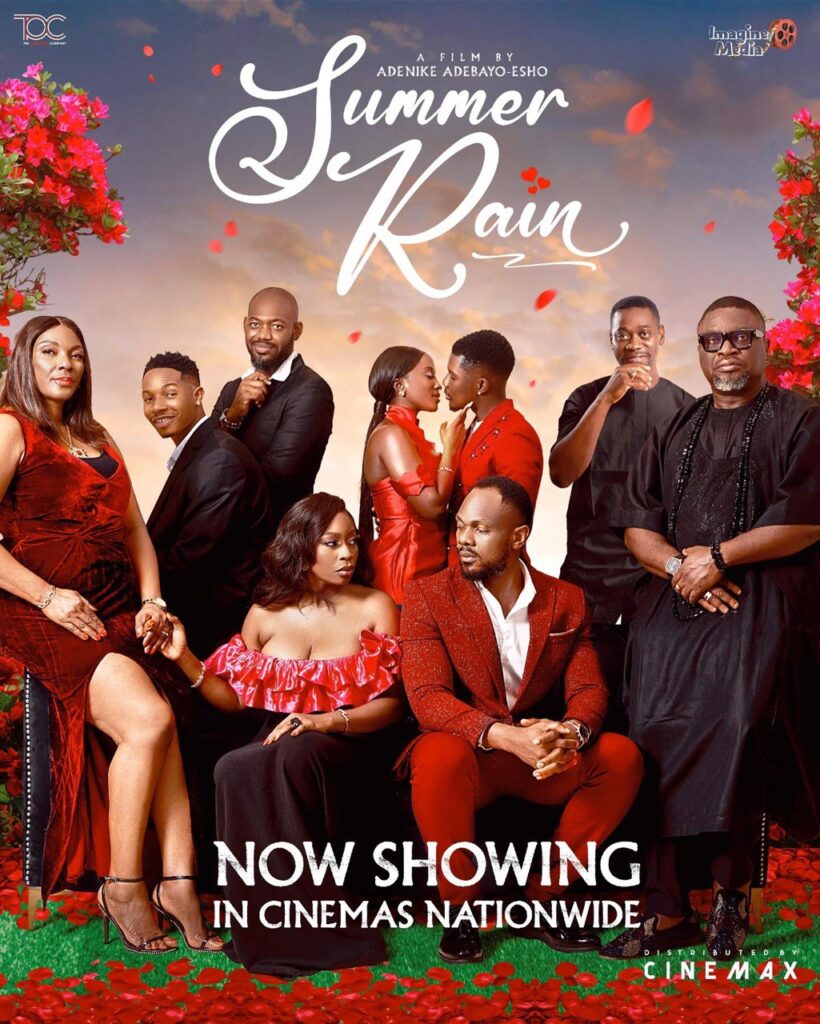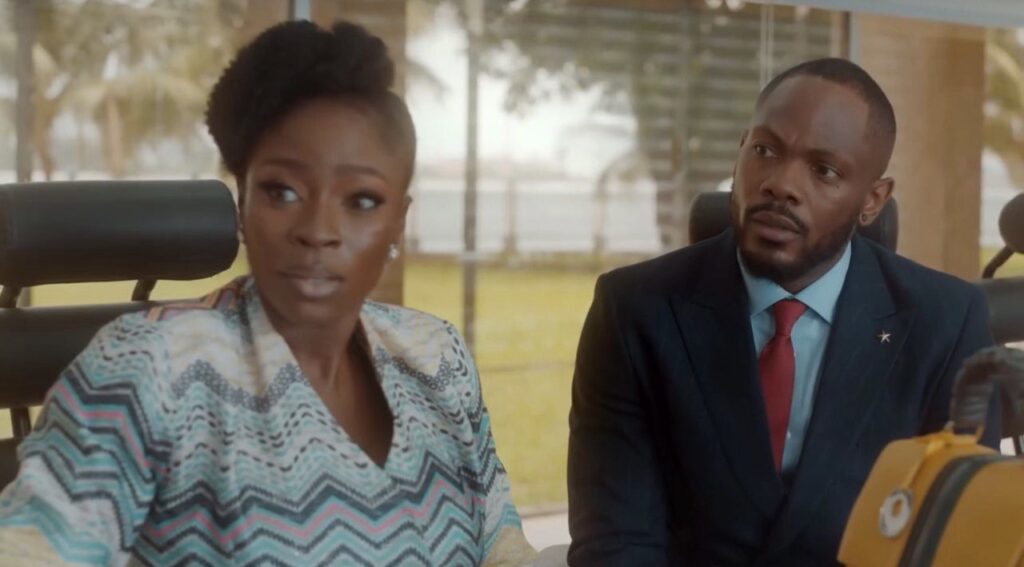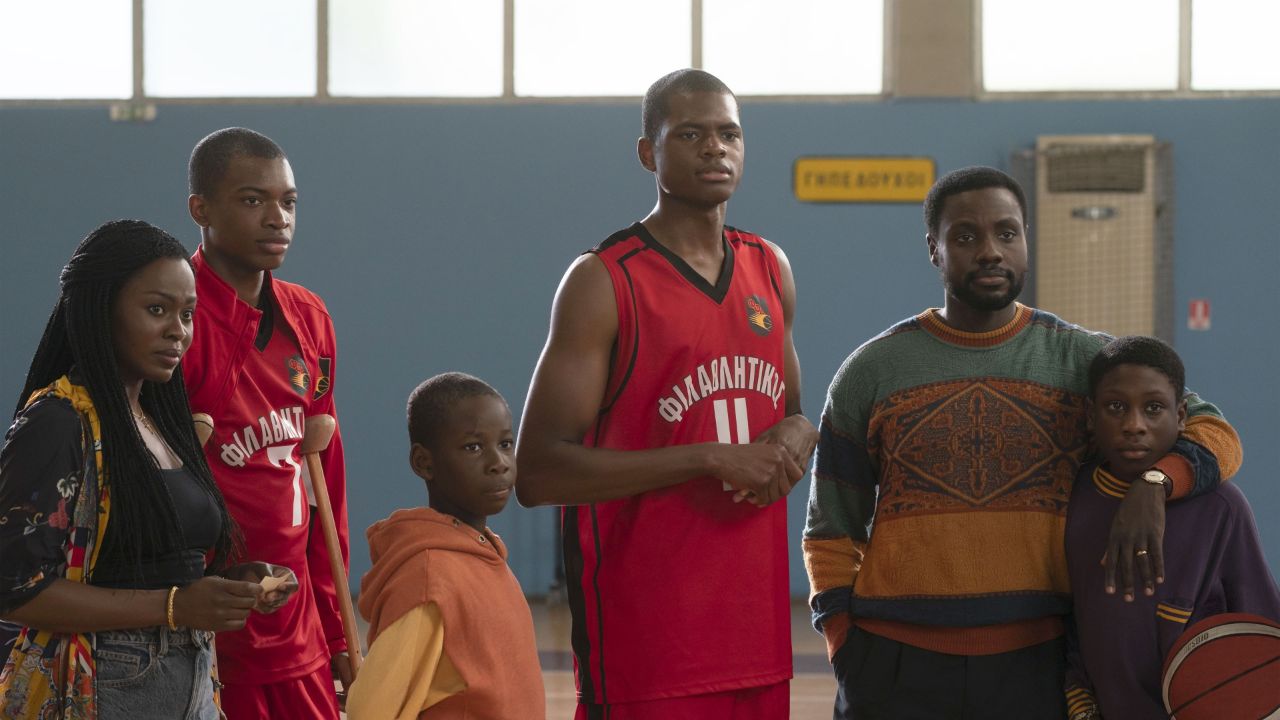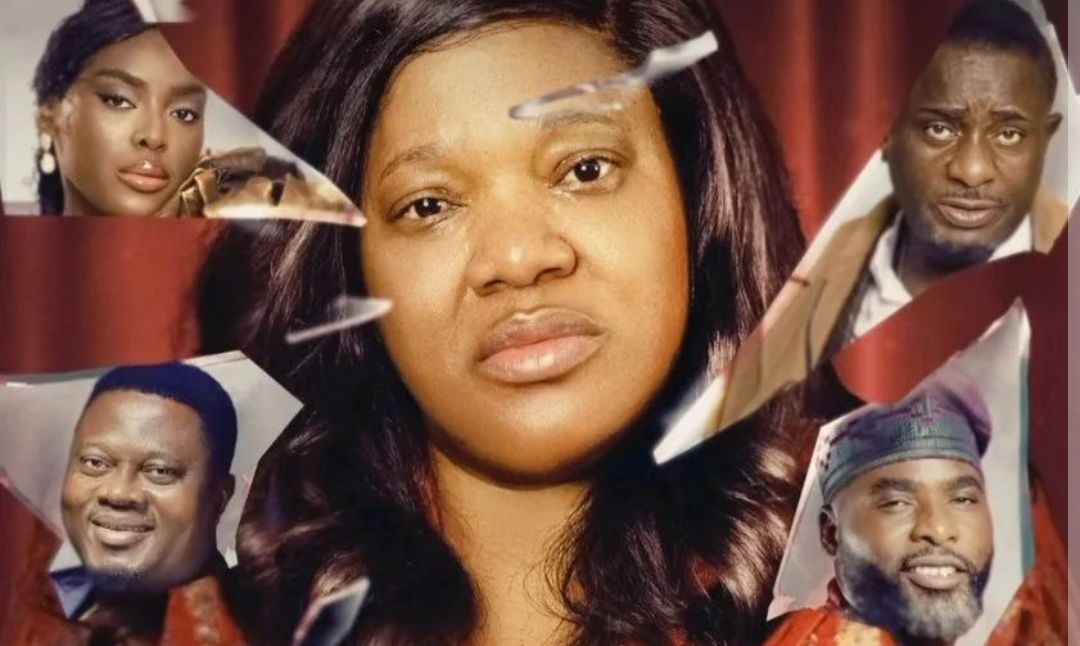Dear reader, help us understand your Nollywood preferences by filling out our audience survey—your input is invaluable and deeply appreciated! Click this link.
Crafting an original modern romance is a daunting task. While audiences devour these stories, the creators face the formidable challenge of conjuring a plausible and compelling narrative that delays the inevitable union. In today’s romantic landscape, it’s increasingly difficult to devise a credible obstacle that keeps the couple apart for a satisfying 90 minutes, while maintaining their relatability and aspirational appeal. The traditional barriers to love tropes—betrayal, family, and even societal boundaries—have grown tired, leaving writers to innovate and push the boundaries of the genre. The creators of Summer Rain do not bring anything remotely avant-garde or innovative (not like they make any effort to do so) to this love story, instead relying on overfamiliar tropes and tug-at-your-heart moments to build its plot. You are only swept up by the personal charm of the major actors and their ability to hold this film together while you groan at the array of clichés they have to march through.

Summer Rain follows the love story of Murewa Abe (Bolaji Ogunmola) and Adimchi Amadi (Daniel Etim Effiong), two people destined for each other, who reconnect years after a painful breakup. As they navigate the tumultuous affair of rekindling their love, they’re given a second chance to rewrite their story and make their relationship whole again. Bolaji Ogunmola and Daniel Etim Effiong bring their perky romantic-drama presence to this made-for-YouTube movie (a Chemistry repairing—this time for the big screen), which checks all the boxes you’d expect from such a slick and glossy example of the genre, including classic elements like a concealed secret and a dramatic, last-minute confession of love or proposal. Regardless, Summer Rain is a film that courts your attention; we all love love —in all its beauty, and messiness.
The two lovebirds, Murewa and Adimchi, are much like the familiar romance characters we’ve seen and read in films and books. There’s so much of their adolescent romance that reminds me of young Obinze and Ifemelu in Chimamanda Adichie‘s “Americanah”; the earnestness and yet the uncertainty of their desire. The youthful vigor of the young lovers, portrayed by Genoveva Umeh (Blood Sisters) and Kayode Ojuolape Jr.(Ijogbon), anchors the plot and lends some tenderness to the story. Director Adenike Adebayo-Esho takes a gamble by balancing nearly half the film’s narrative on the shoulders of its younger cast, trusting in their ability to convey the essence of their love’s early bloom. It’s a decision that pays off, as Umeh and Ojuolape not only hold their own but also imbue the film with an authenticity that’s hard to overlook. So, when the narrative shifts to Ogunmola and Effiong’s timeline, the transition is almost seamless.
By the time we meet the older Murewa and Adimchi, it is already ten years apart since that poignant scene of their adolescent selves at the opening. They bump into each other in front of a hotel; one is leaving and the other is just arriving at the same place. Thankfully, we don’t get that awkward conversational jostling of ex-lovers bumping into themselves. They are both grown adults now, each professional in their own right. As though that serendipitous meet-cute is not eye-rolling worthy enough, fate (let’s pretend so, after all fate has an uncanny habit of stalking lovers) brings them under one roof to work together on a building project.
For Adimchi, ten years hasn’t changed his feelings towards Murewa. “I’ve loved her almost half of my life,” he says to his best friend. For ten years, Adimchi has painfully borne the weight of his love for Murewa. However, Murewa still nurses the hurt of his abandonment, and her initial response to Adimchi is cold and resentful even if a part of her still longs for him. The custodians of love must be specially rooting for Murewa and Adimchi, that they are kind (quite rare) enough to keep them single for a decade without which would have made their love story messier than it already was.

Soon, the tense atmosphere surrounding them gradually starts to ease. They begin to find comfort and laughter in each other’s company again. Adimchi, persistent and clear in his desires, has shed the bashfulness of his youth. Murewa on the other hand is cautious, her guarded heart still healing from past wounds. As they tiptoe through this fragile reconciliation, the narrative unfolds with a mix of authentic emotions and familiar tropes.
Summer Rain doesn’t shy away from cliché; in fact, it parades them with a certain audacity. From the pregnancy that pushes them apart, to the chance encounter outside a hotel to the dramatic health crisis of young Tiara (portrayed by the delightfully talented Darasimi Nadi) and the not-so-big reveal in its aftermath, the plot points are familiar. “Chaos is a ladder,” Little Finger once told Lady Sansa in Game of Thrones. Summer Rain exploits chaos solely to move its plot forward. Yet, what saves this film from drowning in its own tropes is the sheer likability of its characters. Ogunmola and Effiong, with their seasoned charm, manage to elevate even the most predictable lines with a genuine warmth that feels like a hug from an old friend.
Still, Summer Rain does stumble where it could have soared. The emotional depth of their reunion could have been mined more thoroughly by providing the audience with a profound exploration of the older lovers’ resilience against time and pain rather than depending on the manipulative invention of crises to sustain the film’s gravitas.
In the end, Summer Rain is a film that knows its audience well. It doesn’t aim to reinvent the wheel but to spin it with enough flair and heart that you almost forget you’ve seen this ride before. It’s a testament to the enduring appeal of love stories, where even the clichés can feel new when told with such charm.
If you’re looking for a film that will challenge your perceptions of love, this isn’t it. But if you’re in the mood for a story that reminds you why you fell in love with love stories in the first place, Summer Rain will not disappoint.
Summer Rain was released in theatres February 7.
Become a patron: To support our in-depth and critical coverage—become a Patron today!
Join the conversation: Share your thoughts in the comments section or on our social media accounts.
Track Upcoming Films: Keep track of upcoming films and TV shows on your Google calendar.
Side Musings
- “Fine…I’m going to order from the most expensive restaurant.” Really, Murewa? Was that even necessary?
- Adimchi casually fishing out his mother’s engagement ring from his pocket and telling Mama Murewa that he can propose immediately looks like something inspired by excessive consumption of Telemundo.
- Bolaji Ogunmola’s wardrobe and hair stylist did an excellent job.
- Femi Branch’s very existence in this film was just annoyingly theatrical as his dementia and to add pepper to the injury, they made him Igbo. Glad they took care of him when they did.
- This one is better asked in pidgin: wetin Murewa wan use her daughter birth certificate do that day gan? Summer Rain will whine you with unimaginative plot devices but no panic.
- I like that nobody paid attention to Adimchi’s lollipop addiction but the actors themselves because I don’t know exactly why they thought that it was necessary to include that in his character bible.





“Adimchi casually fishing out his mother’s engagement ring from his pocket and telling Mama Murewa that he can propose immediately looks like something inspired by excessive consumption of Telemundo. ”
🤣🤣🤣🤣